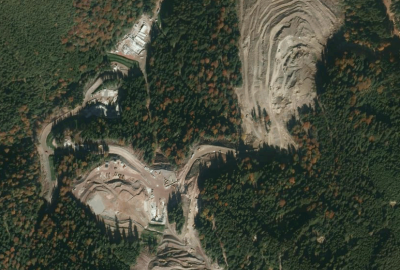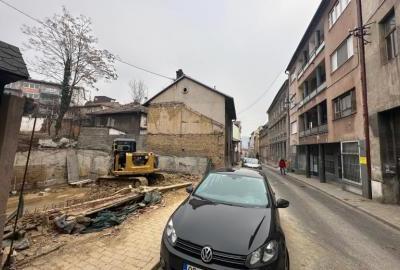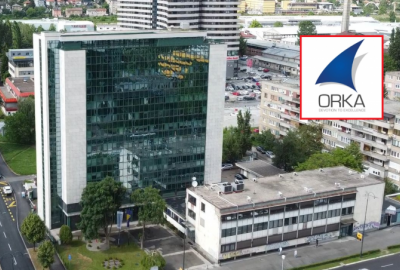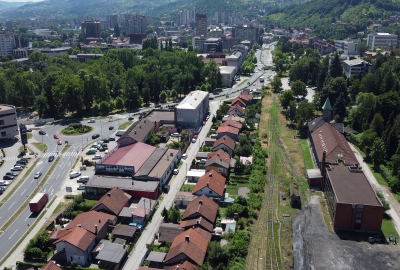Žurnal in English
CANTONAL COURT IN MOSTAR DECIDED: Adriatic Metals loses exploitation permit for Vareš Mine
On December 30, 2024, the Cantonal Court in Mostar issued a ruling annulling the underground exploitation permit granted to Adriatic Metals BH. The decision was based on concerns over the potential threat to the drinking water source that supplies the Municipality of Kakanj. The court’s reasoning stated that the critical question of whether underground exploitation would impact the Bukovica water intake, and the extent of that impact, was not adequately addressed. Additionally, the court found that the Federation Ministry had authorized exploitation at an unexamined and restricted site.
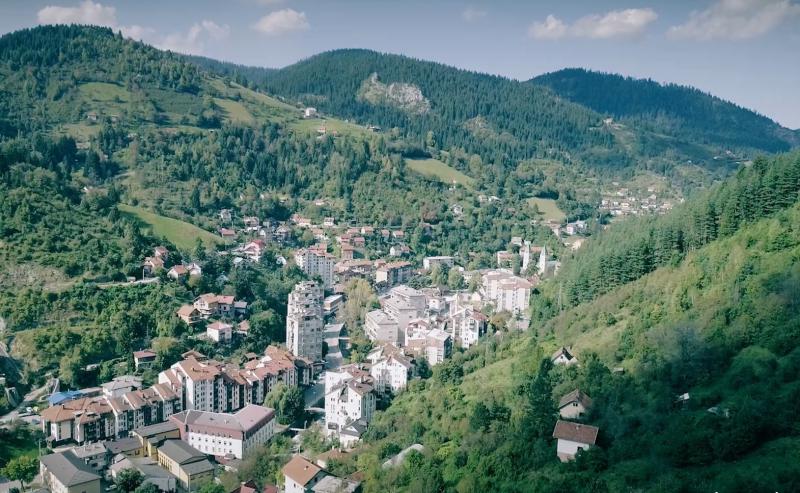
After nearly two years of administrative litigation, the Cantonal Court in Mostar issued a ruling on December 30 of last year, following a lawsuit filed by the Public Enterprise Vodokom Kakanj against the decision of the Federation Ministry of Energy, Mining, and Industry. The court annulled the underground exploitation permit granted to Adriatic Metals BH, citing the potential threat to the drinking water source supplying the Municipality of Kakanj.
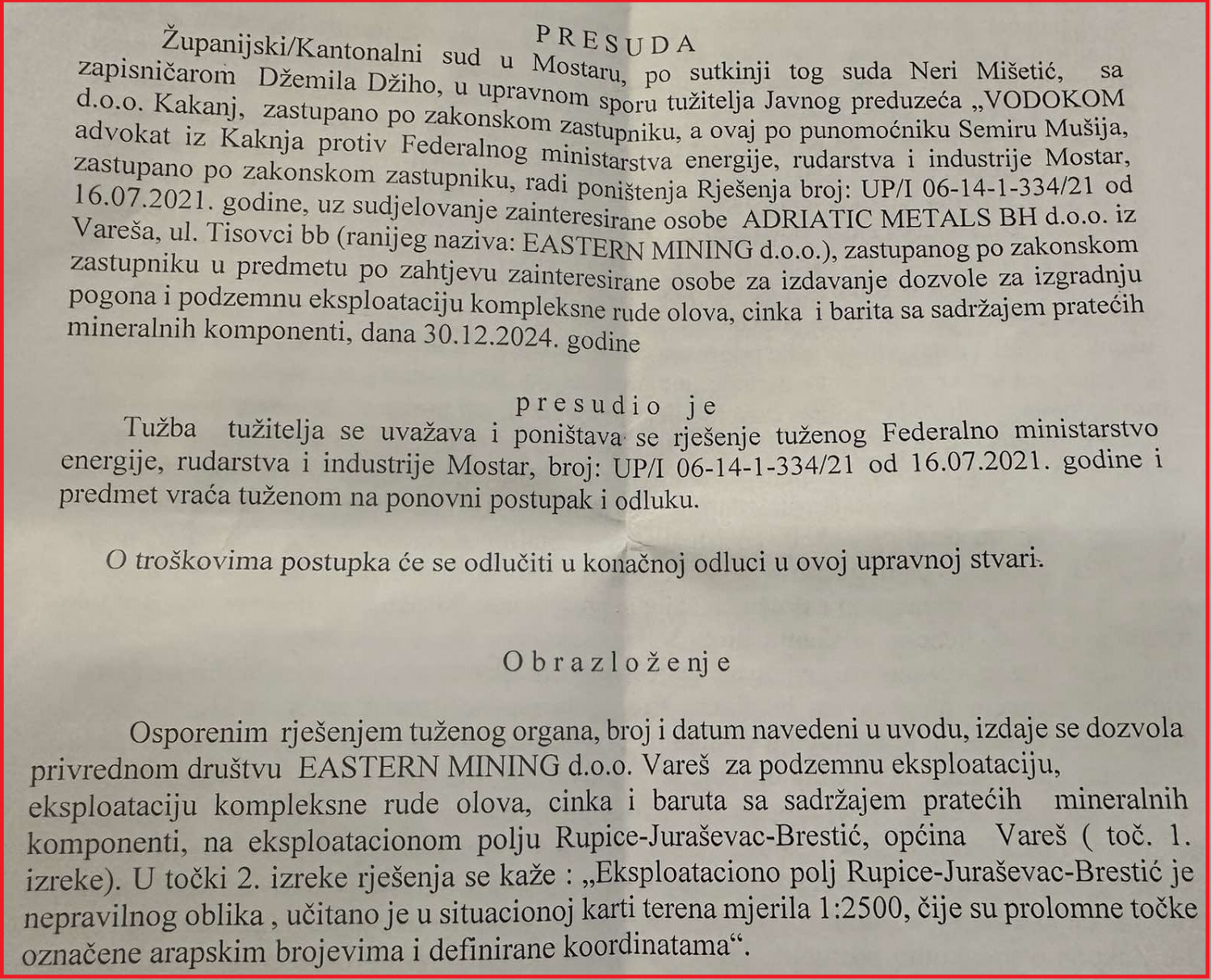
The court’s reasoning stated that the fundamental question whether underground exploitation would impact the Bukovica water intake, and to what extent was not adequately addressed. Additionally, the court found that the Federation Ministry had authorized exploitation at an unexamined and prohibited site.
“Before the disputed decision was issued, the defendant was required to clarify whether the future exploitation of mineral resources and the construction of facilities at the Rupice-Juraševac-Brestić site would negatively impact the Bukovica spring... It is undisputed that the concession area occupies and lies in water protection zone III, a partly in water protection zone II, but the area for which the exploitation permit is requested is located in a much narrower zone, outside II and III water protection zone. In the court’s view, the critical question regarding which specific area (outside II and III water protection zone) is permitted for exploitation has not been adequately answered. Furthermore, the court found that it was not sufficiently established whether underground exploitation could jeopardize the drinking water supply for the residents of Kakanj, potentially causing irreparable damage”, reads the ruling of the Cantonal Court in Mostar.
The case has been remanded to the Federation Ministry of Energy, Mining and Industry for a new procedure and decision, with no possibility of appeal. In an interview with Žurnal, Azra Berbić from the Foundation Atelier for Social Change (AKT) expressed that activists welcome the court’s decision, even though it has been a long time in coming.
“It is encouraging when courts identify flaws in administrative procedures and annul decisions and permits. This is a prime example that the rule of law still prevails, and that the law is above large, powerful, and wealthy mining companies despite them, as we suspect, being in cahoots with authorities at various levels”, says Berbić.
The Foundation states that since the Ministry’s decision has been annulled, this will have direct consequences for the activities of Adriatic Metals. The Ministry must now reconsider the matter and address the identified shortcomings.
- Our assumption is that the Federation Ministry will require Adriatic to conduct an impact study. Furthermore, when a new decision is issued, a new public hearing will need to be organized, allowing the public, citizens, and activists to comment and submit suggestions. We will certainly insist that this process be carried out accordingly, says Berbić.
A SERIES OF CONTROVERSIAL DECISIONS WHICH “BENEFITED” ADRIATIC METALS
It should be noted that in mid-2021, the Federation Ministry of Energy, Mining and Industry granted Eastern Mining, now Adriatic Metals, a permit for underground exploitation. A month later, Public Enterprise Vodokom Kakanj filed a lawsuit against the Ministry to annul this decision. It was only in March 2024 that the public learned that Eastern Mining, now Adriatic Metals, had approached Vodokom in 2021 seeking approval for the exploitation and construction of the mine. However, they did not receive approval.
The key reason for refusing to grant approval, according to Vodokom, was that the company did not submit valid documentation, analyses, or a study demonstrating whether the future mine would impact the Bukovica water intakes. Vodokom’s explanation also states that the data provided in the submitted documentation was not truthful.
“It is untrue that the mineral deposit at the Rupice-Juraševac-Brestić site does not fall within the Bukovica river basin. It is also false to claim that the mineral deposit is located downstream of the Bukovica water intake, or that future exploitation will not affect the Bukovica water intake in any way. These are key facts and they were misrepresented, as the source of the Bukovica River, its watercourse, and water intake are vital resources for the city of Kakanj”, reads the lawsuit.
It should be noted that it was precisely due to these allegations that Vodokom engaged an expert in the field of geology, prof. Mirza Bašagić, to provide an expert opinion at the request of Adriatic Metals regarding the potential impacts on the zones of sanitary protection of the Bukovica water intake.
“It is evident from the topographic maps attached to the Studies in question that, according to the contour coordinates of the concession area, the borders of the concession area are not only located within the protection zone III, but also extend into the protection zone II in which, pursuant to the Rulebook on protection and the valid Decision on the protection of Bukovica Spring, any exploitation of mineral deposits is exclusively prohibited”, stated prof. Bašagić in his expert opinion.
Additionally, the Studies conducted by the Mining Institute from Tuzla claim that the Rupice deposit is located downstream of the Bukovica water intake and that the future exploitation and construction of the mine will have no impact on the Bukovica water intake.
“It is incomprehensible that such a renowned institution as the Mining Institute from Tuzla would make such claims, when it is well known and completely clear that the Bukovica water intake is located downstream and at a significantly lower altitude (approximately 590 meters above sea level) compared to the Rupice area, which is situated at an elevation of about 1010-1220 meters above sea level, and in some areas even higher. Even in the Preliminary Design (RIT, January 2020), a two-level pit exploitation is planned, with the lower elevation reaching 825 meters above sea level, well above the water intake, and also above Bukovica watercourse and especially the nearby Borovički stream, which flows directly below Rupice”, reads the statement of Vodokom Kakanj.
Additionally, it was stated that the claims in the relevant Studies regarding the inverse height relationships of water intakes and reservoirs, which were carried over from previous water permits and implicitly referenced in the Environmental Permit that referred to these earlier permits, are unfounded and arbitrary. The author of the Opinion suggests that “such inaccuracies may stem from either the ignorance of the Institute teams who prepared the Studies or, at the very least, from tendentious writing aimed at facilitating procedural processes in the interest of Eastern Mining as the investor!”
Vodokom did not respond to Žurnal’s inquiry regarding the Cantonal Court’s ruling. Furthermore, they failed to inform the public about rendering of this important ruling, despite its significance for the citizens of Kakanj.
The Municipality of Kakanj also did not respond to Žurnal’s inquiry. The silence of these institutions is not surprising. It should be noted that citizens were informed about the issues with drinking water through social media, rather than official announcements or communications from these institutions.
In mid-January last year, an informal group of citizens from the Trstionica and Boriva Nature Park published a document on social media from the public enterprise Vodokom Kakanj in which action from the Federation Administration for Inspection Affairs was requested due to the presence of heavy metals in drinking water.
The Municipality of Kakanj responded at the time, stating that “the water is in danger, and a legal fight is underway to preserve the water intake, but analyses are also being conducted that show the water is currently safe for drinking”.
“We are fighting for water from the Bukovica water intake! We want to preserve both the quality and quantity of water, protect our forests and mountains. In recent months, we have launched a series of activities. We are acting institutionally, documenting all problems, and contacting the relevant inspectorates and ministries at higher levels... We are persistent in our fight. We have contacted all relevant institutions. Vodokom, which was authorized by the Municipal Council to monitor the water situation, has also filed a lawsuit”, said the Mayor of Kakanj, Mirnes Bajtarević.
Regarding the presence of heavy metals in drinking water, Vodokom stated in response to Žurnal’s inquiry that they had received information from the Cantonal Administration for Inspection Affairs, which, among other things, notes that “it is reasonably believed that cadmium is of natural origin from the soil”.
“Since May of last year, certain fluctuations have been observed in the monthly sampling and analysis of the Bukovica River water for the presence of heavy metals, conducted by the company Sistem Qalitas d.o.o. Pale. The fluctuations observed during this period (from May to December 2023) were within the permitted values”, Vodokom stated.
In response to Žurnal’s inquiry regarding the occurrence of heavy metals in drinking water in Kakanj, the FBiH Administration for Inspection Affairs stated that since the intensification of work on opening the pit and constructing the ore processing plant by Adriatic Metals, 11 environmental inspections have been conducted, including control inspections. They reported no irregularities, except in one case.
Company Adriatic Metals “categorically rejects claims suggesting that the operation of the Rupice mine affects the water quality of the Bukovica River and the supply of drinking water for the citizens of Kakanj”. In response to Žurnal’s inquiry, the company stated that they have been conducting water analyses for three years, even before the start of work at this location. The analyses have shown minor traces of heavy metals in the natural flow of the Bukovica River, indicating the presence of these metals in the river for decades.
Additionally, Adriatic Metals stated that the responsibility for the purification and distribution of drinking water in Kakanj lies with Vodokom Kakanj, which is legally obligated to monitor water quality at the consumer level and promptly notify citizens if any heavy metal levels exceed the permitted values.
“Historical reports from relevant government agencies confirm that water quality issues in Kakanj have existed for decades, long before our activities and operations began”, Adriatic Metals stated at the time.
Is there corruption in concessions and other permits?
The issues with the operation of Adriatic Metals’ mine extended beyond concerns about drinking water for the municipality of Kakanj. At the end of last year, the company admitted to “accidentally” cutting down about 3.000 square meters of state forest in Vareš. It is more than 100 adult trees of fir, spruce, beech, and maple.
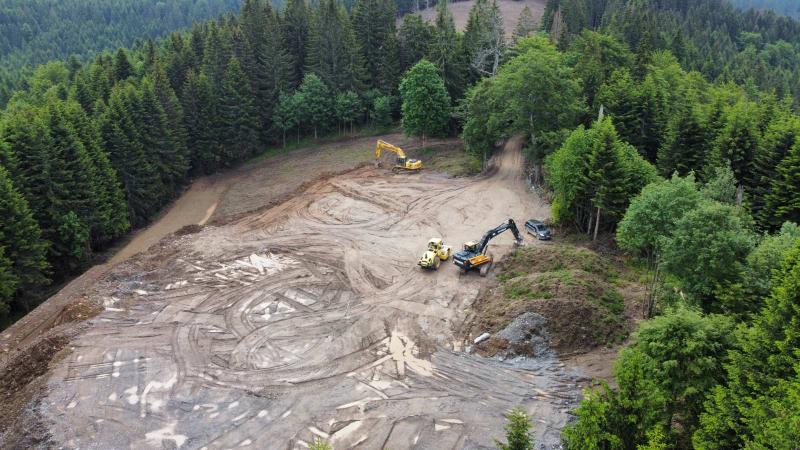
On October 2nd of last year, the Cantonal Forestry Administration of ZDC filed two criminal complaints against the company and its directors. However, two months after this incident, instead of imposing sanctions, the Federation Government issued a permit to clear an additional 7.2 hectares of state forest! The Cantonal Prosecutor’s Office of ZDC determined that the clear-cutting of state forest did not constitute a criminal offense, but rather a misdemeanor.
In the middle of last year, the Constitutional Court of Bosnia and Herzegovina ruled that the Federation Government’s decision to change the purpose of forest land and temporarily allow its use for other purposes, in favor of Adriatic Metals, was unconstitutional.
Following the ruling, the Prime Minister of the FBiH Government, Nermin Nikšić, defended the decision of the FBiH Government to illegally allocate state land, specifically forests, to the Adriatic Metals for use. He referred to the invaluable state forest that he allowed the company to destroy as “thicket”, justifying the sale of state property by citing investments and new jobs.
“Some people clearly think that it is better to remain a hopeless thicket called state property, than to have a promising investment on land that is also state-owned”, said the Prime Minister, commenting on the original decision of the Constitutional Court to temporarily suspend the Government’s decision.
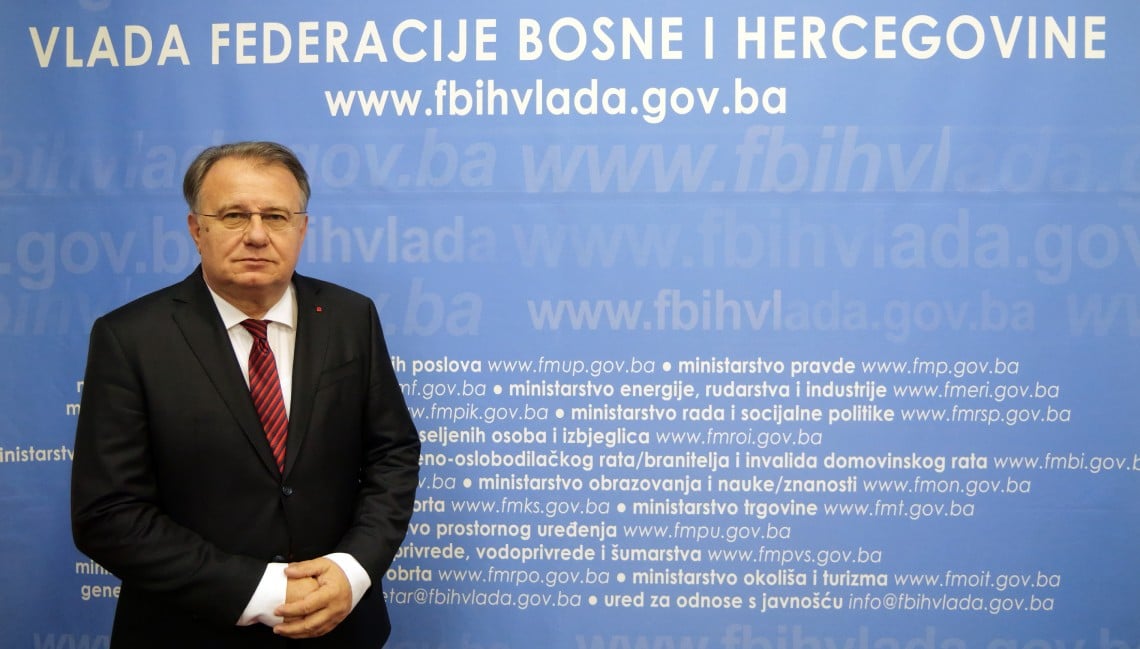
After the decision of the FBiH Government, Adriatic Metals went on to destroy dozens of hectares of state forest, including areas that were not part of the unconstitutional decision of the FBiH Government.
Activists also question the legality of the contract with Adriatic Metals.
Hajrija Čobo, activist and lawyer, and representative of the citizens gathered in the informal group Trstionica and Boriva Nature Park, stated in an interview with Žurnal that the court confirmed the arguments regarding the potential threat to the water supply for the entire city. She emphasized the “confusion of concepts” in the claims made by the Ministry and Adriatic Metals, who persistently base their arguments on the term “Bukovica Spring” while neglecting the fact that the issue pertains to the “Bukovica water intake”. The latter term refers not only to the spring of the river but also to the entire course of the Bukovica River, including its tributaries and groundwater, as the water intake encompasses all of these water sources.
- It is a notorious lie that the activities of this mine have no impact on the Bukovica River! All wastewater from the newly constructed industrial road, located in a water protection zone where such construction is strictly prohibited, is being channeled into the Bukovica River and, as such, reaches the citizens’ taps. The pollution, let me clarify, is not only from the heavy metals we have been discussing, but also from micro particles of truck tires that pass along that road. The water used to wash the road is not drinkable! Unless we are talking about citizens of Kakanj”, states Čobo.
Citizens are outraged, Čobo adds, by the positions of the Ministry and Adriatic Metals, which persistently prioritize the right to work over the right to water. In this case, the right to work benefits about 500 people, while the right to water affects 25.000 consumers. That’s 25.000 households, each with at least three family members so, just imagine how many lives are endangered by such a calculation.

Čobo believes that the contract with this company, which the public has not had access to until now, is also questionable.
- The Law on the Temporary Prohibition of Disposal of State Property, which entered into force in 2005, clearly states in Article 2, point 2: “Any decision, act, contract, or any other legal instrument, disposing of property referred to in Article 1 of this Law concluded contrary to the provisions of this Law, shall be null and void”. This means that the Concession Agreement we are discussing is illegal and NULL. For those who don’t know, a null contract has no legal effect, meaning it’s as if it doesn’t exist. Taking into account the decisions of the Constitutional Court of Bosnia and Herzegovina since 2012 concerning state property, it’s clear to me that this is an illegal and unconstitutional contract, states Čobo.
Additionally, she called on the Prosecutor’s Office and the Attorney General’s Office of BiH “to finally act in accordance with the Constitution, the law, and the decisions of the Constitutional Court of BiH and stop this anarchy”.
At the end of November last year, the Foundation Atelier for Social Change - AKT filed a lawsuit against the Ministry of Economy of Zenica-Doboj Canton for refusing to provide the public with the concession agreement and its accompanying annexes for the mine in Vareš. An oral hearing in this case was held in early January.
“During the hearing, attended by representatives of Adriatic Metals BH and the aforementioned ministry, we emphasized the obligation for the public, including citizen associations, foundations, and individuals, to have access to and the right to review all documents through which our common goods are granted under concession to domestic and foreign investors. We requested that the Cantonal Court in Zenica order the delivery of the concession agreement”, stated the Foundation.
The activities of Adriatic Metals have also sparked protests from local communities in Vareš. During the joint Citizens’ meeting of Pržići, Daštansko, and Mir local communities, held at the end of last year, locals expressed their concerns regarding the actions of Adriatic Metals BH. Ignoring the local residents’ stance, the company began preparations for the disposal of tailings and other materials at the Veovača open-pit mine. The local population and the Local Community Councils were neither informed nor included in the procedure for adopting the Decision on the amendment of the valid environmental permit by the Federation Ministry of Environment and Tourism. This amendment was initiated by Adriatic Metals BH at the end of August last year, requesting a new location for the disposal of tailings after the Constitutional Court’s decision that prevented the use of state land for this purpose.
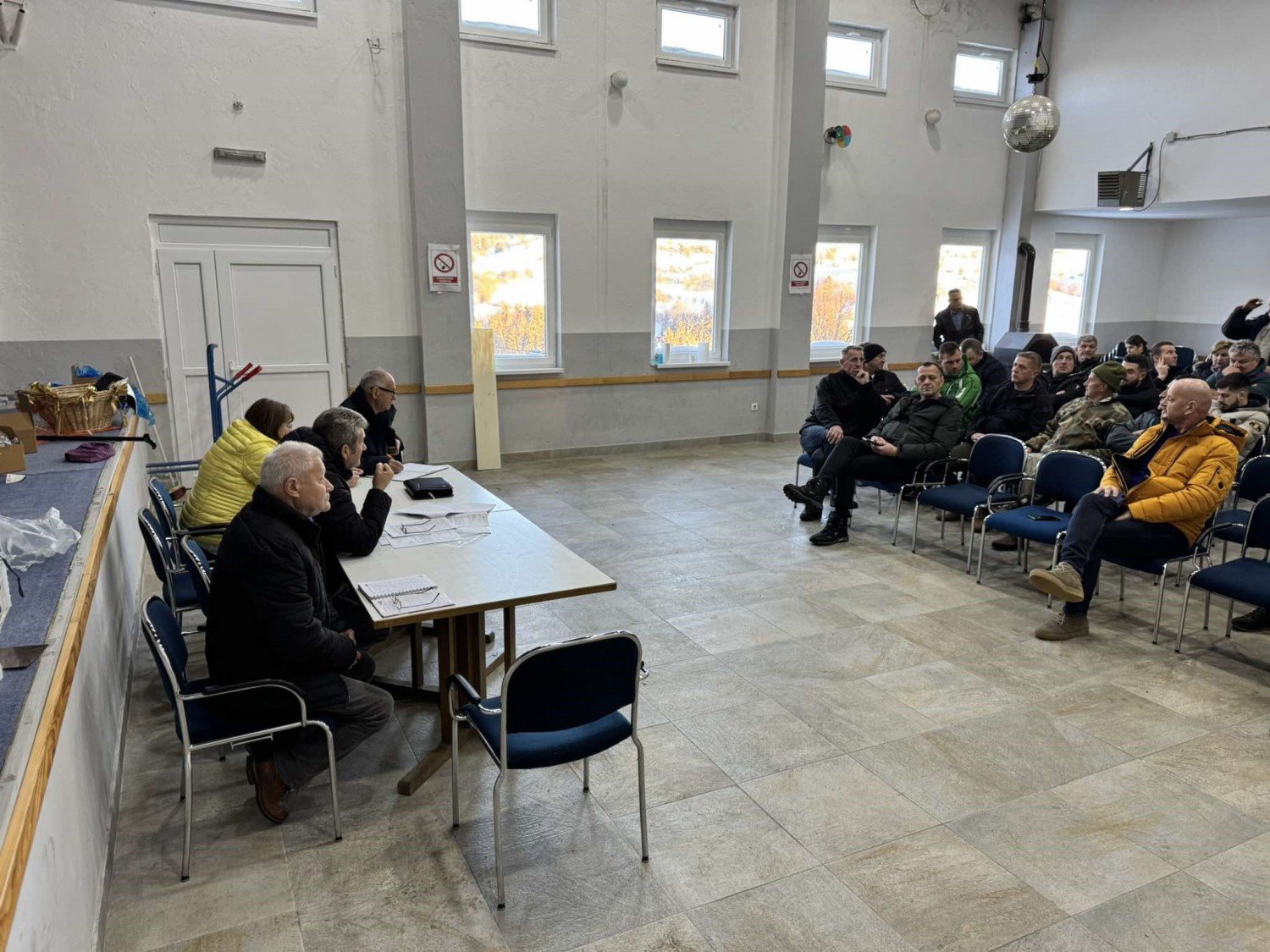
“After the competent authorities violated the BiH Constitution in an attempt to benefit the company, and after being prevented from disposing of the tailings at the planned location, Adriatic Metals d.o.o. decided to dispose of it in the immediate vicinity of the aforementioned local communities, for reasons known to them. Although Adriatic Metals BH d.o.o. was aware of the local communities’ position from the beginning through a document of September 8, 2024 in which the communities made it clear that they were not in favor of any disposal of materials, especially not tailings, the company proceeded with these actions,” said the group Cardboard Revolution.
The AKT Foundation states that they have also joined this procedure and filed a lawsuit against the competent Federation Ministry of Environment and Tourism, awaiting the outcome of the dispute. Meanwhile, Cardboard Revolution announced that they expect a joint meeting in the near future with the presidents of the local communities Stupni Do, Dabravine, Vareš-Majdan, the Federation Ministry of Environment, and the relevant inspections. “The goal of this meeting is to protect this area, as well as the entire country, from such aggressive behavior by investors and the subservient attitude of local and higher levels of government.”
- If the will of the locals is not respected and Adriatic Metals BH d.o.o. continues to disregard the wishes of the local population, roadblocks and protests will follow. It must not be allowed for our homes to be destroyed, our health and nature harmed, all for a small fee and a subservient government, concluded the citizens at the meeting.
There are several suspicious decisions, which, as has now been proven, are also illegal and contrary to the law regarding the approval of Adriatic Metals’ operations. The persistence of activists and the residents of certain areas threatened by the company’s activities is leading to positive developments, particularly in pressuring local institutions and individuals to acknowledge the facts presented by the community. Otherwise, suspicions of corrupt practices will arise.
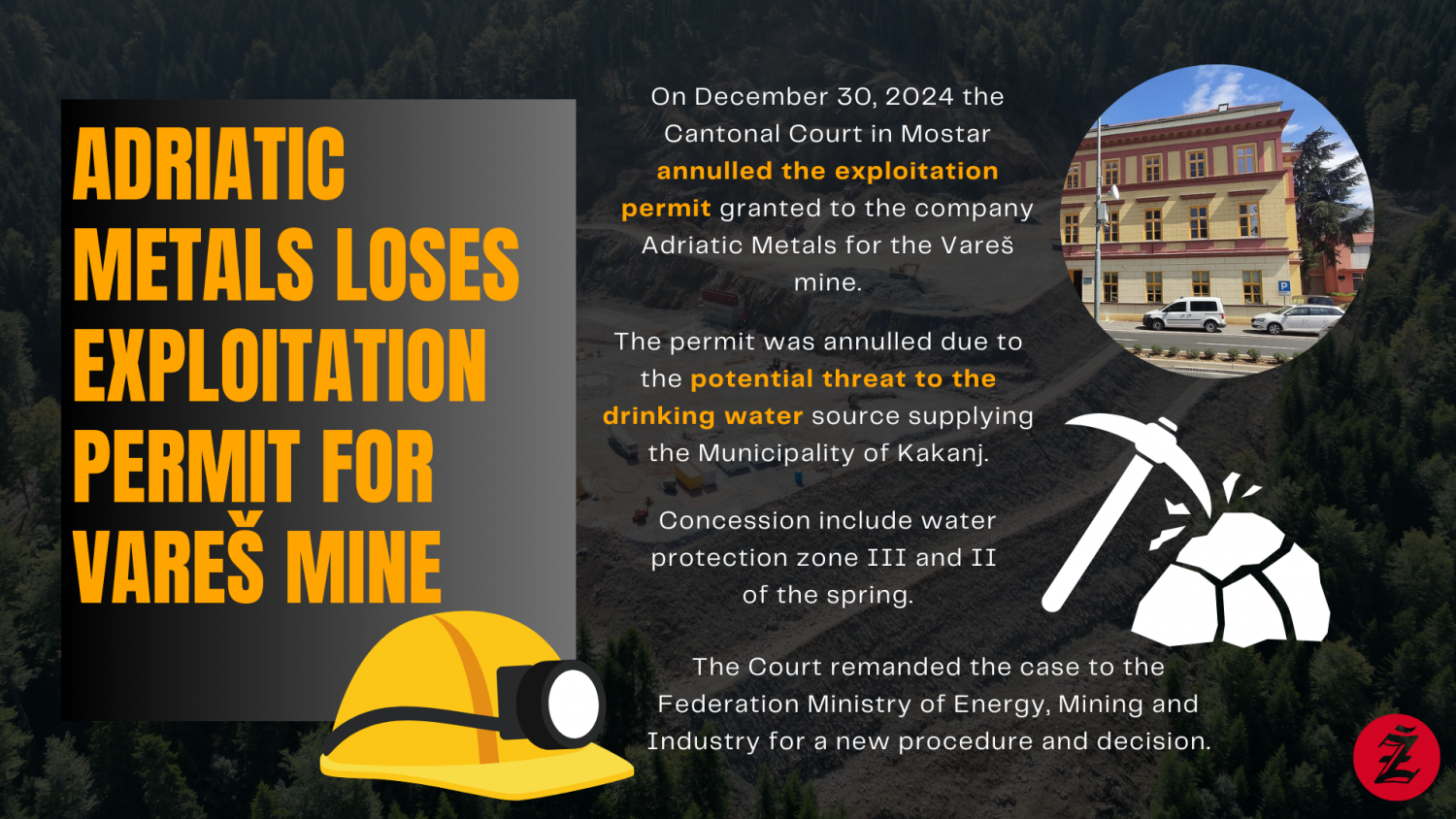
(zurnal.info)





